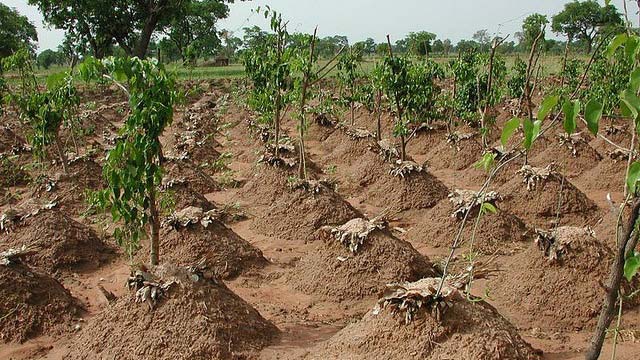By Florence Afriyie Mensah
Fumesua (Ash), May 26, GNA – The Crops Research Institute (CRI) of the Council for Scientific and Industrial Research (CSIR) has commenced a project to boost yam production through the adoption of vegetatively propagated seed systems.
Vegetatively propagated seed systems involve plant reproduction that use leaves, roots and stems to reproduce, especially for crops like yam, cassava, plantain, cocoyam, and sweet potato.
The project is dubbed: “Programme for Seed System Innovation for Vegetatively-Propagated Crops in Africa (PROSSIVA) – Yam Component.”

The five-year programme is a collaboration between the CSIR-CRI and International Institute of Tropical Agriculture, with funding from the Gates Foundation to enhance food security in Ghana.
It will harness the seed yam systems in Ghana and apply scientific innovations for high ratio propagation such as temporary immersion bioreactor, aeroponics, hydroponics and single node vine technology for cleaned seed yam production, linked to a well-structured formal seed entrepreneurial system.
Mr David Appiah-Kubi, Project Lead, Planning and Stakeholders Meeting for PROSSIVA Yam Component at Fumesua in the Ashanti Region, explained that seed systems of yam, cassava, plantain, cocoyam, and sweet potato were underdeveloped and less classified as compared to cereals and legumes.
What necessitated the project was the seed entrepreneurs dealing in vegetatively propagated crops not being known and organised in Ghana, he said.
Mr Appiah-Kubi said the seed multiplication ratio for most of those crops were very low, adding that the situation in which farmers saved seeds for the next season’s planting was a setback.
He said such seeds were often infested with pests and diseases, a situation propelling planting materials to harbour endemic pathogens over generations, which ultimately reduced yield.
In the current informal seed yam systems, most farmers in Ghana reserved about 30-50 per cent of their annual harvest for the next planting season.
He noted that seeds of improved yam varieties released by research institutes were not readily available to be disseminated to farmers.
Also healthy planting material production of vegetatively propagated crops face challenges of high perishability and bulkiness, making transportation or exchange of germplasm difficult for large acreages of land.
The project is a five year-project looking at four major crops (Yam, cassava, plantain/banana, and sweet potato) across five countries; Ghana, Nigeria, Rwanda, Tanzania, and Uganda.
Dr Victor Amankwaah, the Head of the Tissue Culture Laboratory and Screen-house, CSIR-CRI, explained to the Ghana News Agency that the facility would ensure favourable conditions to nurture yam seeds that were healthy for farmers to use.
GNA